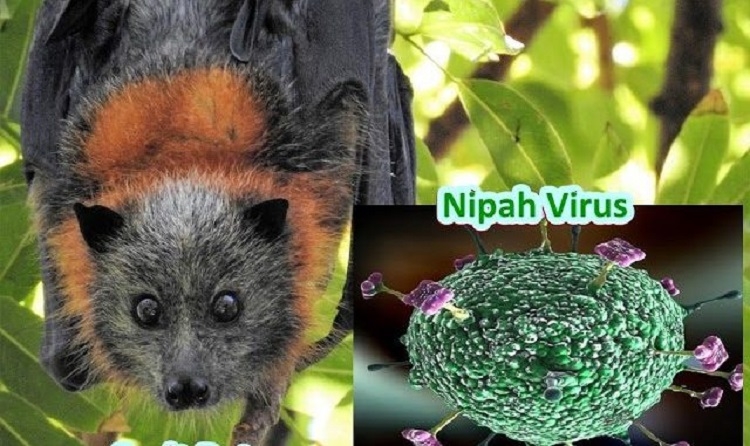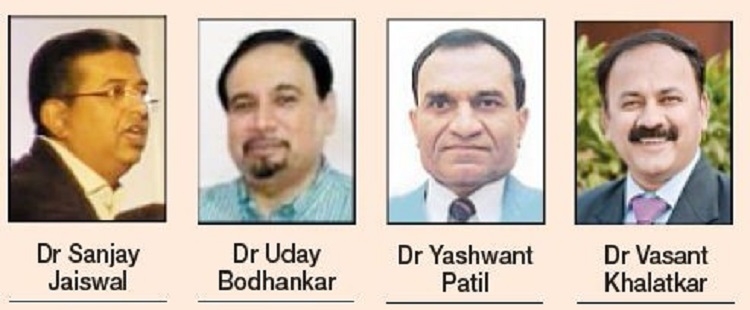Nagpurians should not panic over Nipah virus: Health Department
| Date :10-Jun-2019 |

By Vikas Vaidya:
As some cases of people suffering from Nipah virus reported in Konkan area, a panicky got created in Nagpur also. But health department has appealed people not to get panic about Nipah because the fruit-eating bats that spread the virus are not found in Nagpur and around. Dr Sanjay Jaiswal, Deputy Director of Public Health, who is Paediatrician also told ‘The Hitavada’, “This virus transmitted through the half-eaten fruit by Bat. Since such Bats are not find in our area, the chances of spread of Nipah virus in Nagpur are zero. Of course our department has taken precaution and issued directions to all to keep watch on those coming from Konkan.

The primary signs of the disease are high fever with convulsions.” Dr Vasant Khalatkar, noted Paediatrician and Secretary COMHAD, UK pointed out, “Nipah virus is an emergent zoonotic paramyxovirus causing disease in animals and humans. First human infection was recognized in Malaysia in 1999. In India, Nipah virus outbreaks have been documented in 2001, 2007, 2018 and as recent as June 2019.” Dr Khalatkar explained, “The highly pathogenic Nipah virus primarily causes encephalitis, with a high case fatality of 40 to 75%. Transmission in India has been thought to be due to consumption of fruits or fruit products (such as raw date palm juice) contaminated with urine or saliva from infected fruit bats.”
Dr Uday Bodhankar, Patron of Indian Academy of Paediatricians, Nagpur branch elaborated, “Human-to-human transmission of Nipah virus has also been reported among family and health care providers of affected patients through close and unprotected contact with secretions and body excretions of the patients. The primary pathogenesis is endothelial damage leading to small blood vessels' vasculitis, widespread thrombosis and eventual tissue necrosis.”
Dr Yashwant Patil, International President of COMHAD and paediatrician said, “Central nervous system, particularly the brain, and neurons are the organs severely affected. Other organs such as lungs, heart and kidneys can also be affected. After an incubation period varying from four days to three weeks, the clinical presentation starts with sudden onset of flu-like symptoms of fever, headache, vomiting and sore throat. Encephalitis and seizures indicate the beginning of severe stage of the disease, rapidly progressing to coma within 24-48 hours. Nipah virus may also manifest with symptoms of atypical pneumonia like fever and cough with acute respiratory distress.”
“Patients who survive acute encephalitis usually make a full recovery, with approximately 20% patients showing some residual neurological complications such as seizure disorder and personality changes. A few patients may also develop delayed onset encephalitis,” added Dr Khalatkar. “Reducing the risk of bat-to-human transmission is achieved by thoroughly washing and peeling date palm fruits and boiling their juice before consumption and wearing protective gloves and clothing when handling sick animals. Strict and thorough implementation of standard infection control precautions by the health care professionals will help in reducing the risk of human to human transmission,” informed Dr Khalatkar.